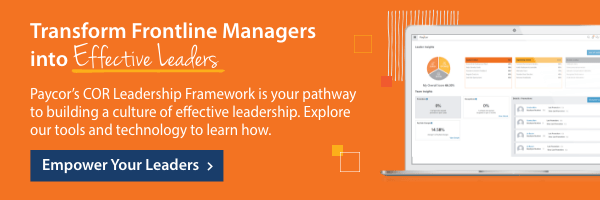As an experienced leader, you can appreciate the necessity of a diverse skillset and the personality traits required to succeed in this rapidly changing business environment. Smarts, ambition, and insightful decision-making abilities are key components of any competent leader’s expertise (and should be a given). But have you ever pondered the power emotional intelligence (EI) can add to your leadership toolkit? It’s often ignored and unappreciated, but EI is the personal attribute that can be the difference-maker in your leadership journey. Keep reading to find out why emotional intelligence can be an indispensable asset to business leadership. We’ll also recommend ways to cultivate and nurture it within yourself and your team.
What is Emotional Intelligence?
Let’s start at the beginning: What exactly is emotional intelligence (and why is it sometimes abbreviated as EQ)? The term was first introduced by Daniel Goleman in his 1995 book, Emotional Intelligence: Why It Can Matter More Than IQ. Goleman’s book introduced the idea that emotional intelligence might play as important, or an even more significant role than conventional intelligence in a leader’s overall success. Since then, the concept of emotional intelligence has been widely adopted in business, education, and personal development.
Emotional intelligence is the ability to recognize emotions in yourself and others and then use those feelings to guide and inform your or others’ behavior to make better decisions. Business leaders who display high EI typically have greater self-awareness, enhanced communication skills, superior problem-solving abilities, and they incorporate more effective conflict resolution strategies in their day-to-day work lives. EI gives leaders the necessary skills to create a nurturing work environment where employees feel appreciated, valued, and want to stick around.
And about that EQ abbreviation: Emotional intelligence is often labeled the Emotional Quotient, hence EQ, but that’s generally viewed as an inaccurate term as EI can’t exactly be measured on a scale like IQ can, so we’re sticking with EI in this article.
Why Is Emotional Intelligence Important for Leaders?
Understanding and harnessing the power of EI can help advance your leadership path to the next level. Leaders who exhibit strong EI deeply understand how their actions can affect their team members. They’re more adept at reading body language, identifying when someone needs a supportive word or gesture of encouragement, and ensuring that everyone feels heard and included in decision-making processes. This empathy leads to stronger morale among team members and a more productive work environment overall. It also helps leaders build trust with their team members because they prioritize making sure everyone feels respected and valued.
How Can Leaders Nurture Emotional Intelligence?
As a business leader, you play a significant role in setting an example and fostering emotional intelligence among your team members. There are 6 key actions you should focus on to ensure you’re exhibiting the trademarks of high emotional intelligence. You must:
- Communicate effectively with your team. This includes being able to understand and empathize with how others are feeling. Encourage open dialogue between employees so they can share their thoughts and feelings openly without fear of repercussions or judgment from other team members or managers. If clear communication is difficult, it will be challenging to build trust and rapport with your team.
- Provide regular feedback. Feedback should include both positive reinforcement when someone does something well as well as constructive criticism when needed.
- Motivate your employees. This means gaining a deep understanding of what motivates each individual and then using that knowledge to inspire them. This is a case where one-size-fits-all is never a good idea since something that motivates one employee might not even be on the radar of another and the gesture runs the risk of falling flat.
- Handle conflict effectively. Staying cool under pressure and finding creative solutions to problems that everyone can get on board with are indicators of high emotional intelligence.
- Make decisions quickly and confidently. Good leaders weigh all viable options and make the best decision for the situation at hand.
- Continue learning and growing. This is a big one. Not only do you have to lead, but you’ve got to lead by example. That means walking the walk and talking the talk. Stay open to feedback and always look for ways to improve.
What Are Some Examples of Emotional Intelligence in Action?
One of the most important aspects of emotional intelligence is the ability to control your emotions during difficult situations or difficult conversations. Leaders who have this quality remain calm and level-headed, even when they are feeling angry or upset. This enables them to better listen to what the other person is saying and respond in a constructive way.
Another way that leaders can use emotional intelligence is by reading and responding to the emotions of their team. This skill involves being highly aware of employees’ verbal and nonverbal cues and using that information to adjust your own behavior. For example, if you sense that your team is feeling stressed, you might adjust your own behavior accordingly by being more understanding and patient. Demonstrating empathy can help build trust and rapport between you and your team members.
How to Develop Emotional Intelligence
One of the most important things you can do to develop your emotional intelligence is to seek feedback from others. This can be difficult, because it requires you to be open to hearing about your own shortcomings, but this knowledge is essential for growth as a leader. Use a 360 review to get feedback from a variety of people, including those co-workers you trust as well as those you don’t know as well. Use this feedback to reflect on your own behavior and make changes where necessary.
Another way to become an emotionally intelligent leader is to check your own emotions. Pay attention to how you feel in different situations and look at what actions (yours and others’) might trigger certain emotions. Once you’re in tune with your emotions, you can manage them better. This reflection can help you stay calm in difficult conversations and prevent you from reacting emotionally in certain situations where it’s not appropriate.
Finally, practice stress management to learn how to deal with stressful situations in a healthy way. When you feel overwhelmed, take a few deep breaths or go for a walk. Find an activity that helps you relax and do it regularly. This will help you keep your emotions in check when things get tough.
How Paycor Helps
When it comes down to it, strong emotional intelligence is essential for effective leadership in any business setting. It enables leaders to effectively collaborate with their teams while also recognizing individual strengths and opportunities for improvement along the way. As a business leader, you play an integral role in helping your team develop higher levels of EI by offering support systems such as performance management sessions or educational resources on emotional intelligence topics. Doing so will help create a healthier work environment where everyone feels respected and valued—and that’s always a good thing!





